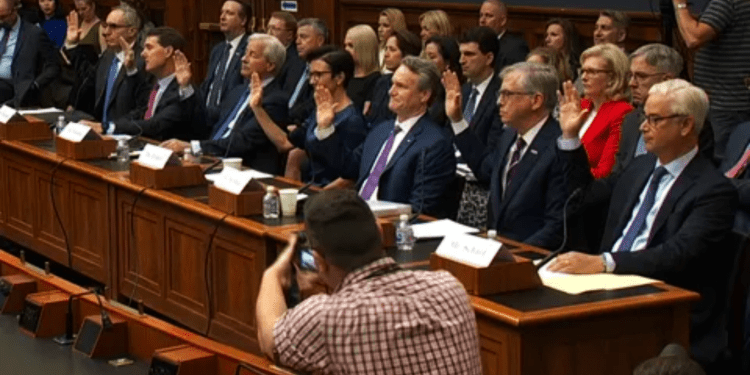Yesterday’s congressional hearing—The Future of Digital Assets: Measuring the Regulatory Gaps in the Digital Asset Markets—was a rare joint meeting between the US House Agriculture Committee and Financial Services Committee.
This hearing was meant to revise the current financial regulations to include provisions for digital assets so that the United States can retain its hold on the cryptocurrency market. In addition, this joint hearing was meant to determine whether the regulatory authority for overseeing cryptocurrency in the US should be entrusted to either the SEC or CFTC. Instead, its legitimacy was wholly undermined by bias and bureaucratic political agendas due to a leaked memorandum.
Before the hearing, a memo was circulated among Democrat Financial Services Committee members on May 9, 2023, encouraging them to abide by a set of “key messages” during hearing question-and-answer periods. The key messages declared that Committee Republicans who sought to diminish the financial regulators’ budgets are not genuinely committed to protecting investors and should prioritize passing an uncontroversial debt ceiling bill rather than promoting crypto-friendly laws.
What is the point of collaborative deliberation and discourse to achieve something when one side not only goes into a situation with a predisposed mindset but also actively deters participants from drawing their conclusions about the situation?
The Financial Services Committee wants the SEC to continue its enforcement paradigm of having crypto firms fear future litigation because of the Commission’s ongoing failure to provide a regulatory framework around digital assets. According to these critical messages, the Financial Services Committee believes that crypto firms migrating out of the US isn’t due to a lack of precise regulation but instead is due to these companies’ refusal to comply with existing SEC legislation. This makes no sense.
It has long been established in Congress that the SEC’s current Howey Test does not apply to cryptocurrencies as an asset class. Under this, it has been impossible for lawmakers in Washington to determine whether digital assets should be considered commodities or securities.
Suppose the Financial Services Committee feels that Republican Committee members should focus on passing an uncontroversial debt ceiling bill (which perpetuates an inflationary monetary system) instead of developing a legal crypto framework. In that case, they want the regulatory ambiguity around crypto to continue. But then, wouldn’t this also harm investors, as according to the Financial Services Committee, crypto is too unpredictable to reflect the stock market’s stability and desperately needs to be regulated to insulate consumers from its price volatility? The contradictions are wild, but that seems to be politics in 2023.














